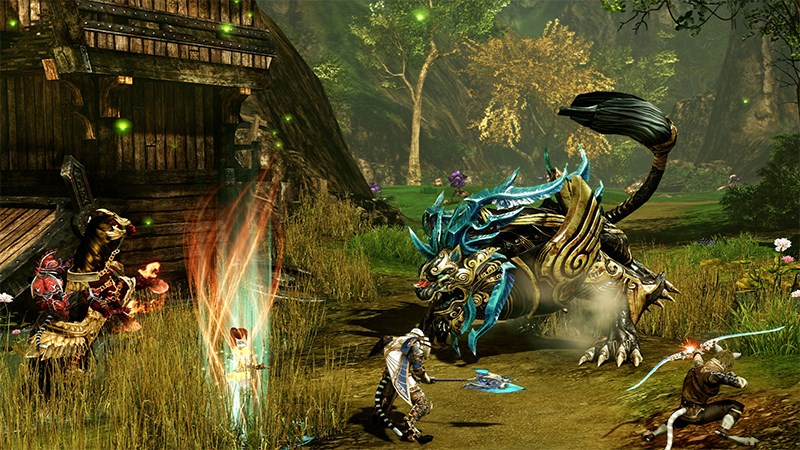The world of online gaming is filled with stories of triumph and tragedy. Players dedicate countless hours to their favorite titles, forging connections with both characters and communities. However, the impermanence of online experiences can be a harsh reality, as recently exemplified by the sudden closure of ArcheAge in Europe and North America.
The Allure of the Grind: Cultivating “Digital Offspring” in MMOs

Massively Multiplayer Online (MMO) games with heavy grinding mechanics hold a special place in the hearts of many gamers. These titles offer a unique experience where players witness their characters grow from fledgling novices to powerful masters. Every acquired skill, upgraded weapon, and painstakingly gathered resource becomes a testament to the player’s dedication. It’s no exaggeration to say that characters in MMOs can evolve into digital offspring, representing countless hours of invested time and emotional attachment.
This emotional connection is precisely what makes the news of ArcheAge’s closure so disheartening. After ten years of operation, the game’s developers made the unexpected announcement that servers in Europe and North America would be permanently shut down.
A Dwindling Player Base Seals ArcheAge’s Fate
According to the developers, the primary reason for the closure was a declining player base. ArcheAge, despite its initial success, failed to maintain a consistent player population in these regions. This ultimately led to financial difficulties, making it untenable for the developers to continue operating servers with dwindling revenue streams.
The impact on players is significant. Not only will the servers be shut down, but all player data – characters, items, and progress – will be permanently wiped. This means years of dedicated grinding will be erased, forcing players who wish to continue in the game to start anew.
Statistical Decline: A Glimpse into the Downfall
Public data paints a clear picture of ArcheAge’s dwindling player base on Steam, a major platform for PC gaming. From a peak of over 6,500 concurrent players in 2014, the numbers steadily declined. By mid-2020, the average concurrent player count had dipped below 100, highlighting a significant and sustained drop in player engagement.
A Last-Ditch Effort to Soothe Disgruntled Players

In an attempt to soften the blow, the developers announced the temporary closure of the in-game store and offered free access to all purchasable items until the servers shut down. While this gesture provides a temporary consolation prize, it does little to compensate for the loss of years of accumulated progress.
Lessons Learned: The Importance of Player Retention in MMOs
The demise of ArcheAge serves as a stark reminder for all MMO developers. Maintaining a healthy and engaged player base is critical for the long-term success of any online game. Failure to implement strategies that attract new players and retain existing ones can lead to a scenario strikingly similar to ArcheAge’s unfortunate closure.
Player Frustration: A Community in Mourning

News of the server shutdown has understandably left many players feeling disgruntled and nostalgic. They invested significant time and emotional energy into building their characters and establishing connections within the game’s online community. The prospect of losing all that progress feels like a betrayal of their invested effort.
A Fleeting World: The Impermanence of Online Games
The story of ArcheAge underscores the fleeting nature of online experiences. Even established MMOs with a decade-long history are not immune to closure. This serves as a cautionary tale for players and developers alike. Players face the possibility of losing their digital “offspring” and the communities they fostered. Developers must acknowledge the importance of fostering a thriving player base to ensure the longevity of their online worlds.
The closure of ArcheAge in Europe and North America marks the end of an era for countless players. It serves as a reminder of the precarious nature of online gaming and the importance of building sustainable communities that can weather the storms of time and changing preferences.
See more games in the Game News section here.













